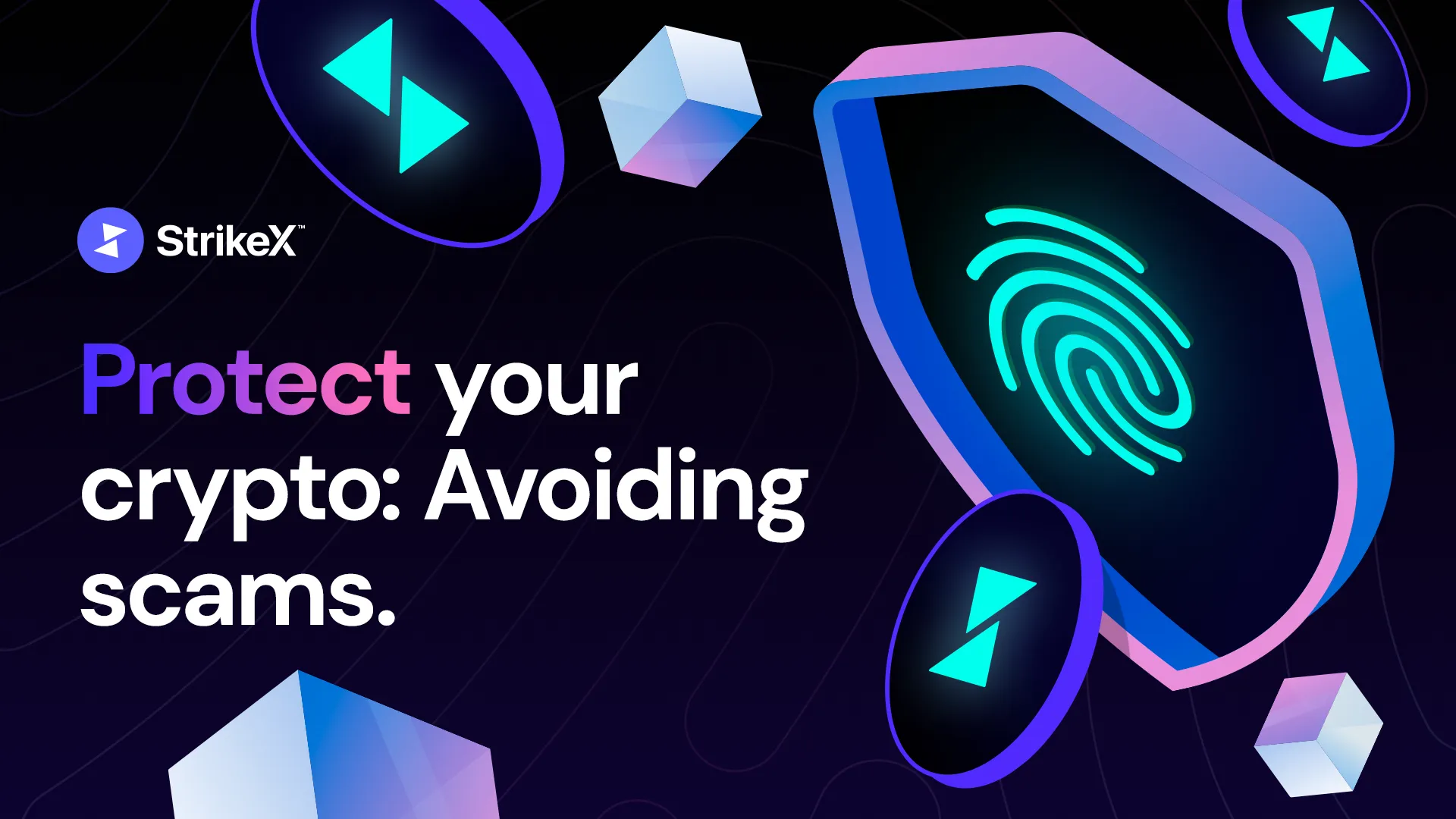Keeping your Crypto Safe.

1. Keeping your seed phrase safe
Your seed phrase (also referred to as a recovery phrase, mnemonic phrase or secret phrase) is your password to access your cryptocurrency stored on-chain. It will consist of 12 or 24 words, which, when arranged in the correct order, give access to your wallet’s contents.
- You must NEVER share your seed phrase with anyone.
- You must NEVER store your seed phrase on your mobile, computer or any device connected to the internet.
- You should keep your seed phrase recorded somewhere safe, in a secure location where it cannot be lost or damaged.
2. Scammers and impersonators
Unfortunately, cryptocurrency is a breeding ground for scammers, and as a cryptocurrency holder, you must know how best to avoid falling victim to them. If you are a member of a crypto Discord, Telegram, or even just following crypto projects on social media sites (Twitter, Instagram, Facebook etc) — there is a good chance that you may have been in contact with a would-be scammer.
Below is some information and tips on how to spot bad actors and to avoid being their next victim:
- Never give out personal information online.
- Never respond to DM’s from people claiming to be team members from a cryptocurrency project.
- Never click on links sent to you in DMs.
- Never click on links sent in public unless you are 100% confident in their legitimacy.
- If you are sent a random link and click on it, NEVER connect your wallet, it WILL be a scam.
- Scammers use social engineering to appear more legitimate, they may target you by building up an online relationship to gain an element of trust before encouraging you to click on scam links or connect to scam exchanges. Even if you believe you can trust the sender, NEVER connect your wallet to anything they send.
- Scammers often impersonate trusted online persons, such as crypto project team members or moderators, often, if a crypto user asks for help in a public forum, scammers will DM them, posing as team members or technical support to scam them.
3. Sim Swap Scams
A spate of phishing scams has occurred recently because of sim swap scams. This is where scammers target trusted social media personalities or cryptocurrency projects by hijacking their social media accounts, they do this by contacting the mobile phone carrier of the account’s associated mobile number and asking for a new sim/new number, they then use this to gain entry via 2FA verification. Once they have control of the social media account, the scammers then proceed to post phishing links on their feed and in DM’s, often claiming to be offering an airdrop or competition, this is done so the account’s followers then click the link and connect their wallet to the site where their wallets are drained.
Whilst this is a more convincing scam due to the use of official accounts, you can avoid falling victim to them by following the basic rules above. NEVER connect your wallet to a website or DApp without verifying its legitimacy.
4. Clone exchanges
Watch out for clone exchanges. Before connecting to an exchange or other web3 site, ensure it has the correct URL. Clone exchanges are identical to their legitimate counterparts but often have a single character of the URL different to the original. Connecting to a clone exchange can give scammers access to the funds in your wallet.
Note: just because the exchange you are searching for might appear at the top of a search engine, this does not mean it can be trusted. Scammers using clones often pay to push their clone site up the search engine results to appear credible.
5. Dusting attacks
Often you will find cryptocurrencies in your wallet that you do not recall purchasing. This is not a friendly gift; scammers often airdrop worthless tokens to victims’ wallets hoping that people interact with the tokens. Interacting with such tokens allows scammers to build a profile of your wallet and gain crucial information, making you more susceptible to a scam. So, if you don’t recognise a cryptocurrency in your wallet… just ignore it!
6. Fake Tech Support
NEVER trust anyone claiming to be from technical support. The internet is awash with fake tech support accounts that target unsuspecting crypto holders looking for help online for crypto-related technical issues. If you have a technical issue, contact the provider directly using the contact information on their official website.
7. Remain anonymous
Whilst you might be proud of your crypto portfolio, you should never share how much you hold with others, whether online or in the real world. Putting your identity next to a wallet increases your chances of falling foul to criminals looking to steal your hard-earned gains.
8. Secure device, secure internet connection
Ensure your device is password protected and has the latest anti-virus software updates. Make sure you use a secure internet connection when using your wallet to connect to any sites or make a transaction. Always avoid using public Wi-Fi.
. . .
— The StrikeX Team.
Learn more about our company on strikex.com
About StrikeX
StrikeX Technologies Ltd is a leading provider of blockchain solutions, specialising in blockchain technology, DeFi, and tokenised assets. The company is dedicated to bridging the gap between traditional finance and Web3, empowering organisations to embrace the transformative power of blockchain.
About CMC Markets
CMC Markets Plc, whose shares are listed on the London Stock Exchange under the ticker CMCX , was established in 1989 and is now one of the world’s leading online financial trading businesses. The Group serves retail and institutional clients through regulated offices and branches in 12 countries and offers an award-winning, online, and mobile trading platform, enabling clients to trade up to 10,000 financial instruments across shares, indices, foreign currencies, commodities, and treasuries.
